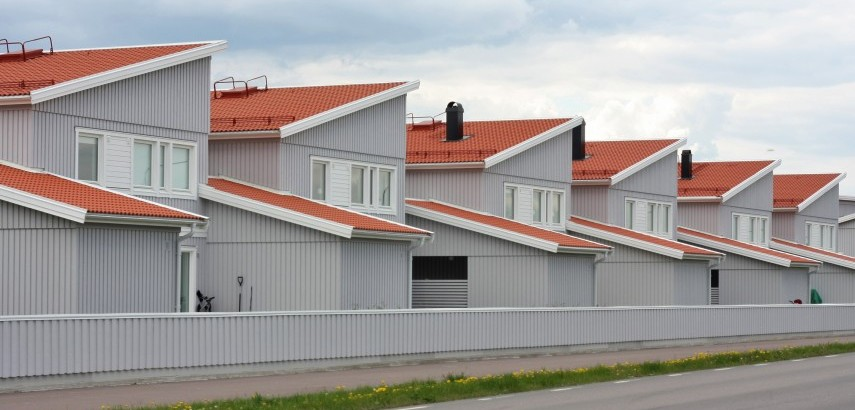Housing cooperatives offer an alternative to traditional homeownership and rental options. They provide a unique way of living that combines the benefits of collective ownership with individual autonomy. Cooperatives are typically owned by members who have a say in managing the cooperative. Each member has a vote in decisions regarding the property, such as repairs and upgrades, and they also have the right to live in the property as long as they abide by the rules set forth by their cooperative agreement.
Members enjoy a variety of benefits, such as shared ownership costs, a sense of community, greater control over living arrangements, and affordable housing options. Cooperatives are ideal for those looking for an economical and socially responsible way to live. With the right information and patience, you can make an informed decision about whether or not a housing cooperative is right for you. This article will provide an overview of housing cooperatives and how they work and discuss their advantages and disadvantages.
What is a housing cooperative?
A housing cooperative, or co-op for short, is a type of housing arrangement where a group collectively owns a building or complex of buildings. Each co-op resident owns a share of the corporation that owns the property rather than owning their unit outright. The co-op corporation is responsible for maintaining the building and making decisions about its management.
How is a housing cooperative different from other types of home ownership?
One of the biggest differences between a housing cooperative and other types of home ownership is that in a co-op, residents don't own their units. Instead, they own a share in the corporation that owns the entire property.
This means that residents have more say in managing and maintaining the building, as decisions are made collectively.
Additionally, in a co-op, residents typically pay a monthly fee that covers the building's operating costs and maintenance rather than paying for these expenses individually.
What are the advantages of living in a housing cooperative?
One of the biggest advantages of living in a housing cooperative is the sense of community that comes with it. Because residents collectively own the building and make decisions about its management, they often feel a sense of ownership and investment in the property.
Additionally, because the co-op corporation is responsible for maintaining the building, residents don't have to worry about doing individual repairs or maintenance tasks themselves. This can be particularly appealing for those who need more time or desire to do these tasks themselves.
Another advantage of living in a housing cooperative is that residents' monthly fees typically cover the building's operating costs and maintenance. This can make it easier for residents to budget their housing costs, as they know exactly how much they'll need to pay each month.
What are the disadvantages of living in a housing cooperative?
One potential disadvantage of living in a housing cooperative is that residents may have less control over their units than they would if they owned a single-family home or condominium. Because decisions about the building are made collectively, residents may only be able to make changes to their units with the approval of the co-op corporation.
Additionally, because residents collectively own the building, they may be held responsible for the debts or financial issues of the co-op corporation. Residents may be required to pay additional fees or assessments to cover the costs if the corporation falls into financial trouble.
Types of housing cooperatives
There are several types of housing cooperatives, each with unique benefits and drawbacks.
The most common type is a homeowner-owned co-op, in which members own shares in the corporation that owns the property. These shares give the members an ownership stake and voting rights over how the building is managed and maintained. This type of co-op offers the most autonomy and flexibility to members, as they have a say in decisions regarding repairs and upgrades.
Another popular type of co-op is a rental co-op, which follows many of the same principles as homeowner-owned co-ops but with some key differences. Rather than owning shares in the corporation, members rent their units and pay a monthly fee to cover the building's expenses. This type of co-op is often attractive to those who prefer the flexibility of renting or can't afford to buy the property outright.
Co-living co-ops are another relatively new form of housing cooperative that has become increasingly popular recently. In this type of co-op, members share common living quarters, often in large dormitory-style rooms. This arrangement can attract those who want to live in a more communal setting and enjoy having roommates.
Finally, there are cooperative housing projects, where members own individual units but work together to manage the building. This type of co-op is often found in senior housing, where residents can benefit from shared services and amenities while maintaining individual autonomy.
The governance structure of housing cooperatives
A board of directors typically governs housing cooperatives that the members elect. The board sets policies and oversees maintenance, repairs, and other decisions regarding the building's management. Members can express their opinion on decisions through voting, which helps to ensure that all residents' voices are heard.
The board also creates a set of rules and regulations that members must follow, typically outlined in the co-op's bylaws. These rules may include requirements for noise levels, maintenance duties, and other communal responsibilities that ensure everyone lives peacefully and respectfully within their cooperative housing project.
FAQs
Q: What is the application process for a housing cooperative?
A: The application process varies from cooperative to cooperative. Generally, applicants must apply and meet certain qualifications the cooperative sets. Depending on the size of the property, there may also be an interview or selection process that takes place before approval. Additionally, most cooperatives require prospective members to pay a fee to join.
Q: What other costs should I expect to incur as a member of a housing cooperative?
A: In addition to any application fees, housing cooperatives may also assess monthly fees for services such as utilities and maintenance. Additionally, members are typically responsible for paying their own taxes and insurance premiums on the property. It is important to note that many cooperatives require members to pay an up-front refundable deposit to join and a periodic assessment fee.
Lastly, members may be responsible for other expenses, such as legal fees and administrative costs. Thus, prospective members must thoroughly research the cooperative before applying to understand potential costs.
Q: How long do I have to live in a housing cooperative?
A: The length of stay for members depends on the rules set forth by their cooperative agreement. Some cooperatives may require that members remain for a certain amount of time, while others may allow members to leave at any time with proper notice. It is important to review the cooperative agreement to understand any restrictions.
Conclusion
Housing cooperatives offer a unique opportunity for individuals to join a shared ownership community and enjoy the same benefits as traditional home ownership. Members can control how the property is managed and maintained through collective decision-making.
Additionally, several costs are associated with living in a cooperative, including application fees, monthly fees, taxes, and insurance premiums. It is important to review the cooperative agreement before joining to understand the expectations and rules of living in a housing cooperative. With the right understanding of what is involved, cooperative living can be a rewarding and fulfilling experience.






